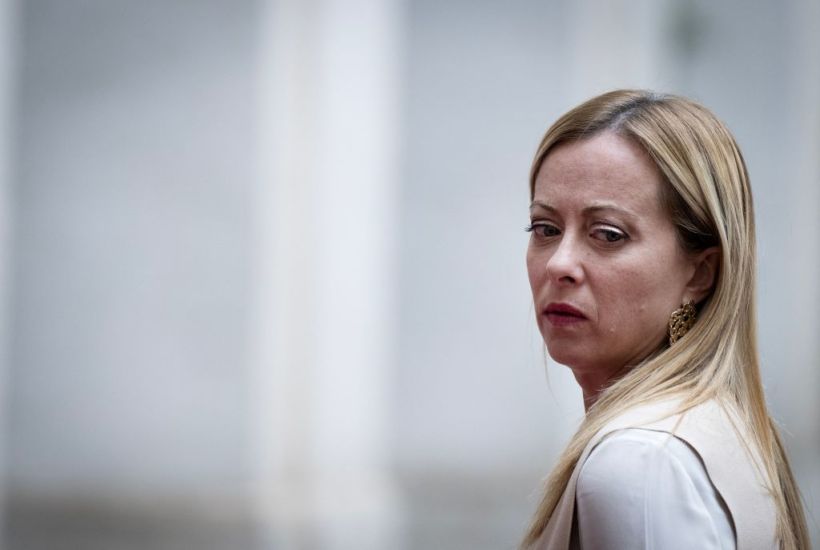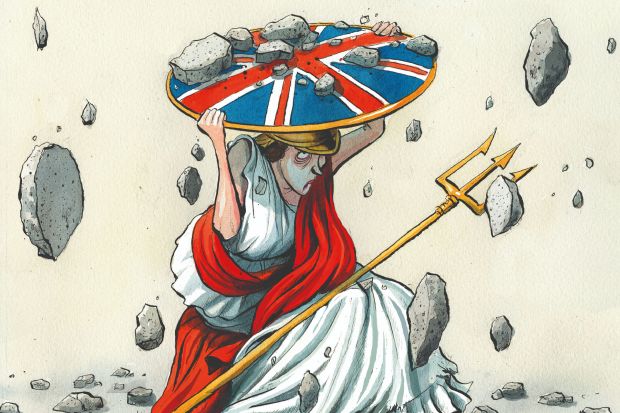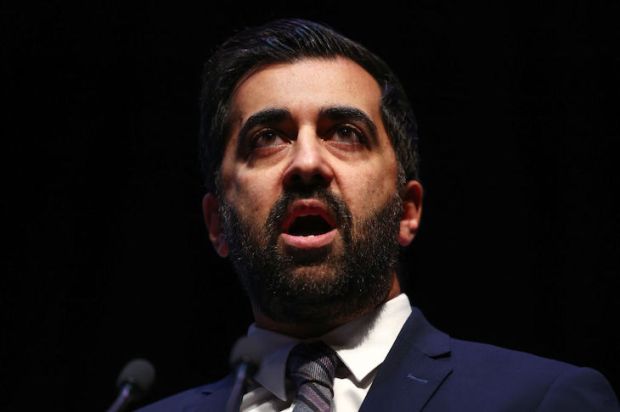Italy has become the first European Union country to bite the bullet and set up a scheme to off-shore migrant asylum seekers to a country outside the bloc. Italy’s right-wing prime minister Giorgia Meloni says she hopes the scheme, signed off in Rome last week with Albania’s left-wing prime minister, Edi Rama, will become a model copied across the EU.
It is similar to the Tory government’s troubled Rwanda scheme, but more practical and less vulnerable to legal challenge. Italy will process asylum requests in Albania where it plans to send tens of thousands of migrants a year. Britain, meanwhile, plans to hand the task of deciding who gets asylum to Rwanda and to send only a few hundred a year.
Later today, the UK Supreme Court is due to deliver judgement on the Rwanda scheme, which was blocked in 2022 by the European Court of Human Rights but whose deterrent factor is vital to Rishi’s Sunak’s famous pledge to stop the boats. The Court of Appeal ruled in June that there was a risk migrants sent to Rwanda would be deported to unsafe countries where they faced persecution.
But Italy is not vulnerable to such a charge. It plans to send only migrants from safe countries to Albania, and by definition they have less chance of being granted asylum or facing persecution if deported.
Under the terms of Meloni’s deal, two detention centres will be built in Albania, paid for and run by Italy, where migrants will be detained while their asylum applications are processed. The centres, where migrants will effectively be jailed, will open next spring.
The scheme could prove the most effective measure ever taken by an EU country to stop illegal migrants. If it works – and that’s a big if. But Meloni has decided to go for it regardless.
Her left-wing opponents in Italy, primarily the Partito Democratico (PD) which is the main opposition party, have ridiculed the idea as unworkable and inhuman. Yet even Germany’s left-wing Chancellor Helmut Scholz promised – after an emergency meeting last week on his country’s worsening migrant crisis – to ‘examine’ similar schemes. Austria and Denmark are already doing so.
As Rama, whose Socialist party is the direct descendant of Albania’s Communist party, told the press: Italy’s PD is a ‘doomed’ political party because ‘it pursues the policies of those who never win.’
Certainly, effective solutions – few and far between till now – are urgently needed to stop the growing flow of illegal migrants into the EU, much of it across the central Mediterranean to Italy. So far in 2023, 146,095 migrants are known to have arrived in Italy by sea from north Africa compared to 90,229 last year and 57,466 in 2021. The record year was 2016 when 181,436 arrived by sea.
When it comes to the migrants from safe countries Italy plans to send to Albania, most will come from Tunisia and the Ivory Coast, which had the second and third highest number of migrants arriving in Italy this year.
One migrant centre will be constructed at the small port town of Shengjin in Albania to identify the migrants and receive their asylum requests. The migrants will then be transferred to the second centre, at a former Cold War air base near the village of Gjader, 12 miles inland, where they will be detained pending the result of their requests. The legal jurisdiction in the detention centres will be Italian but external security will be run by the Albanians.
The precise details of how the scheme will work have not yet been disclosed. But Meloni and her ministers have said that safe country migrants picked up in the Mediterranean by Italian flagged ships (naval, coastguard, or mercantile) will be taken directly to Albania. The scheme will not apply to pregnant women, minors, and others deemed vulnerable.
The two centres will be able to hold up to a combined total of 3,000 migrants at a time. The aim is to process 36,000 people a year – 3,000 a month. To do this, Italy will need to process each safe country asylum application within 28 days and appeals within one week. In theory, that is just about feasible as the detained migrants will be from safe countries. Migrants whose applications are rejected – presumably almost all – will be deported to their countries of origin.
Italy has repatriation agreements with both Tunisia and the Ivory Coast, and also with Egypt (where the fourth highest number of migrants to arrive in Italy have come this year) but not with Guinea which tops the list, nor with many other countries.
In theory, it should be relatively easy to send migrants back to countries with which Italy has signed repatriation agreements. But this could turn out to be the scheme’s Achilles’ heel.
In cases where it is not possible to repatriate quickly, Italian law allows the government to detain failed asylum applicants awaiting deportation for up to 18 months after which they must be released. In this case, they will be taken to Italy where they will freed awaiting deportation, which at that point is unlikely ever to happen.
Regardless of that, the prospect of 18 months detention outside the EU will act as a deterrent. It will also keep many thousands of migrants, who ignore the prospect of jail in Albania and cross the Mediterranean anyway, outside Italy and the EU – at least for 18 months.
There are other difficulties with the scheme. The Meloni government has tried to speed up the asylum process but traditionally it takes at least 18 months to decide an asylum application which can then be appealed. Will it suddenly be possible to process applications in 28 days?
And how will Italy deal with countries it does not have a repatriation agreement with? Last year, the Italian courts issued 28,000 expulsion orders but detained only 6,400 in Italy’s nine repatriation centres. Just 2,900 were actually deported. This year, Italy has deported more, but only 3,900.
Then there’s the question of how the Italian naval, coastguard and mercantile personnel who pick up boats full of migrants in the Mediterranean be able to tell the difference between migrants from safe and unsafe countries.
Human rights lawyers, meanwhile, will of course do their best to undermine and cancel the Albania scheme in the courts – though it will be much more difficult to challenge than the Rwanda deal.
Just over a year go, Italians elected Meloni’ right-wing coalition to stop the boats. Many are already disillusioned with her lack of progress.
Yet Meloni is by far the most popular major EU leader with an approval rating of 44 per cent (Macron’s is 28 per cent, Scholz’s 26). And her party Fratelli d’Italia remains by a long way the most popular in Italy on around 30 per cent in the polls (4 per cent more than its share of the vote at the election) largely at the expense of the PD which languishes on 18.5 per cent.
The ideal solution for Italy and Europe would be to set up asylum processing centres in Africa. This has so far proved impossible.
But Meloni’s Albania scheme has a far better chance of success than the Tories’ Rwanda one. If she pulls it off, public support for her will rocket.
Got something to add? Join the discussion and comment below.
Get 10 issues for just $10
Subscribe to The Spectator Australia today for the next 10 magazine issues, plus full online access, for just $10.




















Comments
Don't miss out
Join the conversation with other Spectator Australia readers. Subscribe to leave a comment.
SUBSCRIBEAlready a subscriber? Log in